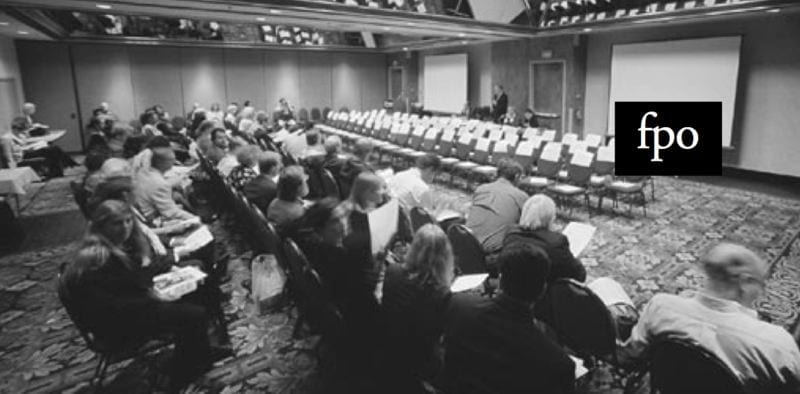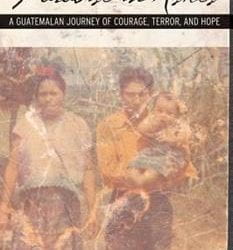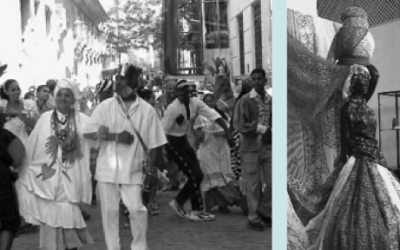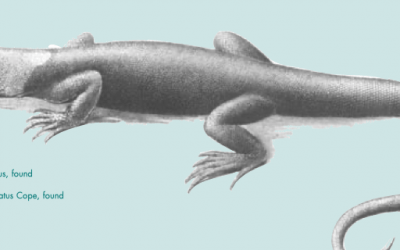Book Launching Becomes Protest
Sixty-five chairs sat empty in protest for the denial of visas to the same number Cuban academics. A book launching party transformed into a special session on “Academic Freedom and Scholarly Exchange with Cuba” at the 2004 Latin American Studies Association (LASA) International Congress. The October 8 session, hosted by the David Rockefeller Center for Latin American Studies (DRCLAS) was to have been a cheery event, a panel to celebrate the publication of The Cuban Economy at the Start of the Twenty-First Century, a book on the Cuban economy, the latest volume in the David Rockefeller Center Series on Latin American Studies.
The panel was to have included all three editors—Jorge I. Domínguez, Omar Everleny Pérez Villanueva and Lorena Barberia—as well as most of the contributors. However, one week before LASA, the U.S, State Department denied visas for each and every of the 65 Cuban scholars who had been planning to come to LASA, whether they taught psychology, poetry, or politics. The unprecedented action meant that the co-editor of the volume and four authors of chapters in the book could not participate in the panel. DRCLAS changed its plans and marked the occasion by hosting a session to discuss the denial of visas to the Cuban scholars and more broadly the issue of academic freedom and scholarly exchange with Cuba.
The panel, now with a different focus, drew a standing-room only audience, facing the 65 empty chairs, each with the name of an absent Cuban and his or her institution. DRCLAS Director John Coatsworth, U.S.-based editors, Jorge Domínguez and Lorena Barberia, and Steve Schwadron, chief-of-staff to Congressman William Delahunt (D-MA) addressed the audience and read a statement from the volume’s Cuban co-editor and discussed appeals by the Cuba Working Group of the U.S. House of Representatives to Secretary of State Colin Powell. In his introductory comments, John Coatsworth read from his preface to the new volume, stressing, “We have learned from our Cuban colleagues, from their knowledge of their fields and their passion for truth, from their resilience in the face of the difficulties their country has faced, from their patriotism, and from their extraordinary warmth and humanity.” Coatsworth added that the decision to deny visas to attend the LASA congress also violates the academic freedom of U.S. scholars. Weatherhead Center for International Affairs Director Jorge Domínguez disputed characterizations made by the U.S. State Department that questioned the academic credentials of Cuban scholars, reading passages from the book to prove his point. In response to the decision by the U.S. State Department, Coatsworth announced that DRCLAS will launch its book on the Cuban economy in Mexico, where Cuban academics have no problem obtaining visas. The rescheduled panel will include all Cuban co-authors and the Cuban co-editor, as well at the U.S. editors and authors. The location and date will be announced shortly. Coatsworth stressed, “the panel will have to take place outside the U.S. in a country which respects academic freedom more than the current administration.”
Fall 2004/Winter 2005, Volume III, Number 1
Lorena Barberia is a Program Associate at the David Rockefeller Center for Latin American Studies and the co-editor of The Cuban Economy at the Start of the Twenty-First Century (David Rockefeller Center Series on Latin American Studies, distributed by Harvard University Press, 2004).
Related Articles
Paradise in Ashes
Traditionally, anthropologists have divorced themselves emotionally and physically from their subjects, placing the highest priority on objectivity and the role of the anthropologist as expert…
Highlights of Cuban Colonial History
On January 6, 2002, el cabildo habanero, hundreds of dancers and musicians reenacted the activities of las comparsas of nineteenth-century Cuba. During the era of Cuban slavery, these…
The Herpetology of Cuba
Cuba is often on our minds for geopolitical reasons, but the island nation has long fascinated students of flora and fauna…





